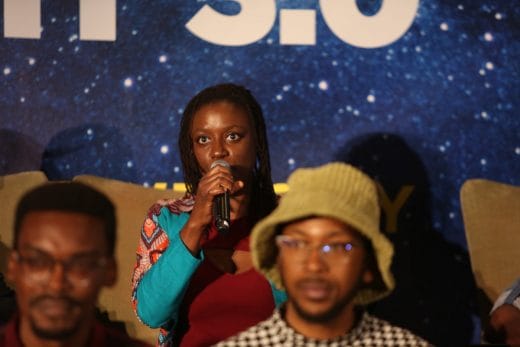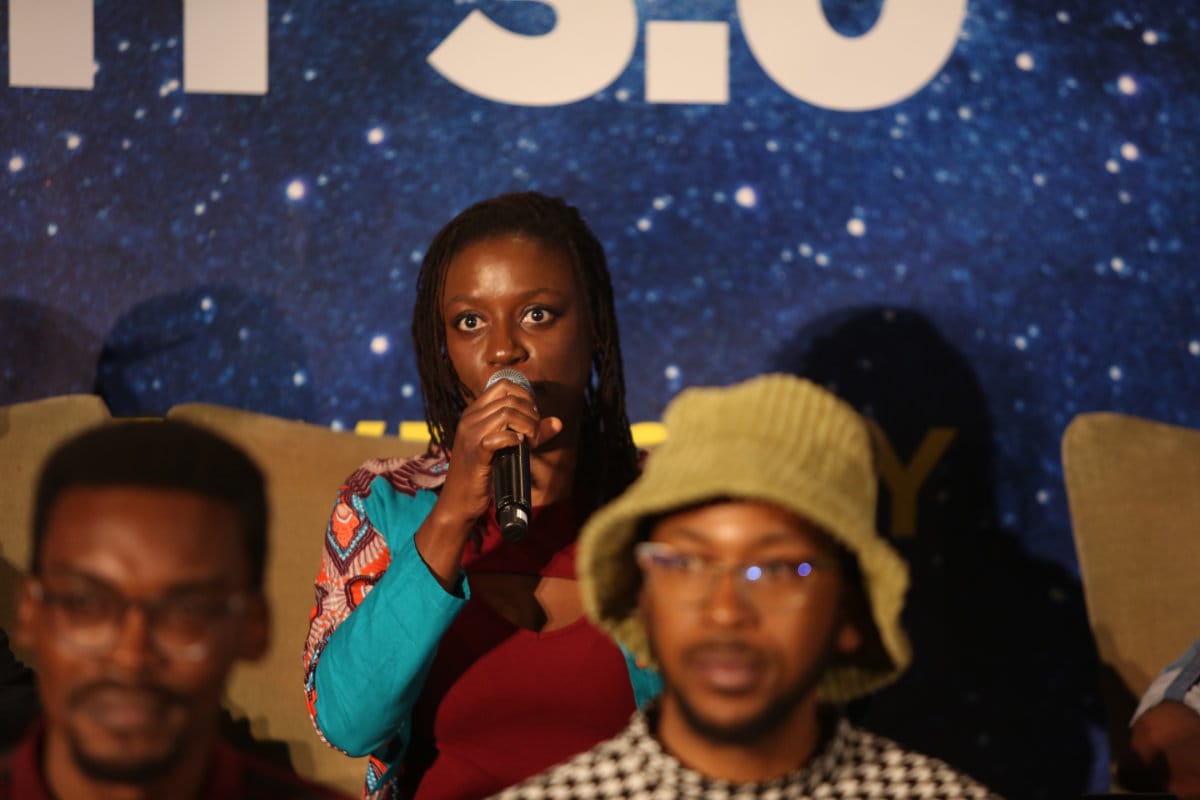
The AfroAnimation Summit is an annual hybrid conference hosted in April both in Burbank, California and with an international online community. The conference aims to create opportunities for BIPOC animators, including People of Colour who do not identify as Black, to tell more diverse stories in the medium of animation.
While the conference creates a powerful opportunity for attendees to meet and exchange ideas with other BIPOC artists, it also aims to provide practical opportunities for animators to improve their portfolios and further their careers.
The AfroAnimation Summit was founded in 2021 by Keith White, who initially approached the project from a business perspective. We sat down with Keith to discuss the conference, the current climate of the animation industry, and the intersection of industry and inclusion.
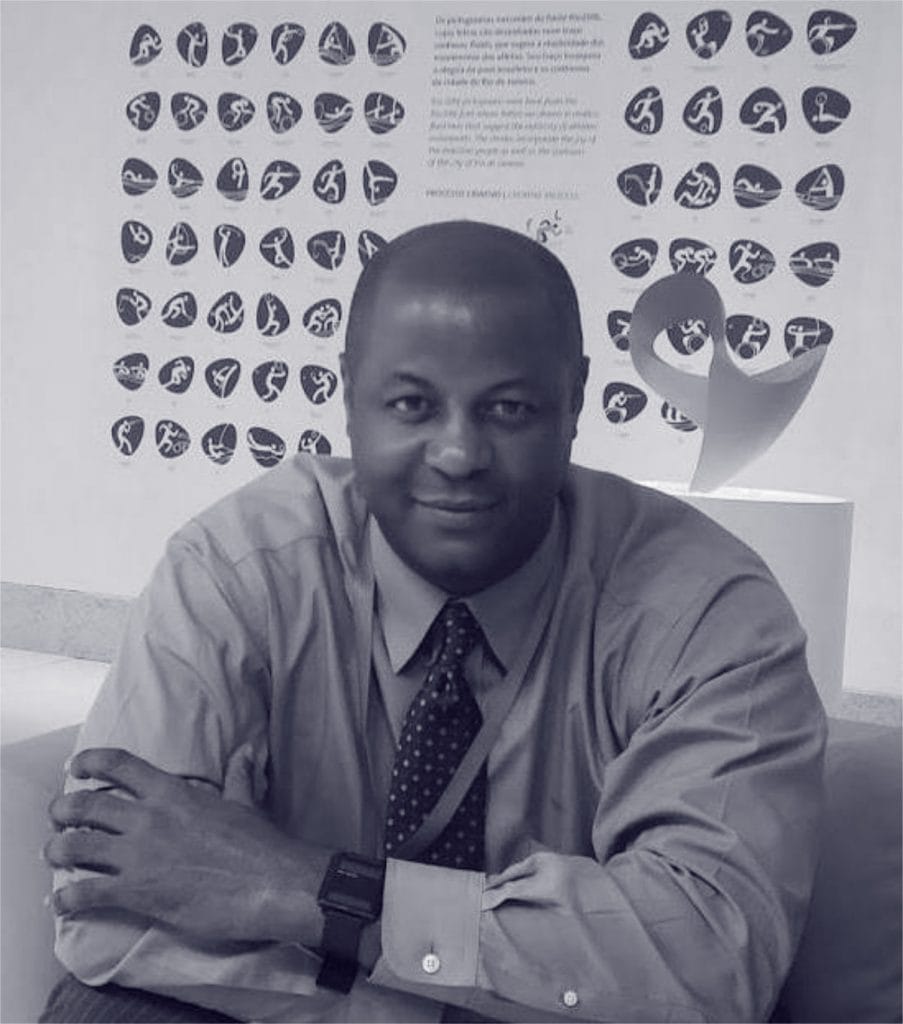
What interested you in creating the AfroAnimation Summit?
Keith: I’m a marketing guy. I started out with I.B.M. and I got into entrepreneurship selling to the federal government in Washington, D.C. I think I’ve just always had the entrepreneurial bug. My grandfathers on both sides of the family were entrepreneurs. So I think that’s just part of my DNA.
In 2008, I started looking at the digital space, particularly when YouTube was coming up. And I think if I had anything as a talent, it’s that I’ve always been able to spot where the opportunity is going to be. So I started what was kind of the opposite of YouTube. Our content wasn’t the Wild, Wild West – it was a more family-friendly, consumer-driven, short-form video content.
Then in 2019, I got a call from someone in Africa that said that there was a media company that was up for sale. Going way back, I used to be in television syndication. I started going over to Nairobi to look over this deal with a partner of mine. And then the pandemic happened.
So I came back to the U.S., but I had met a lot of creators between South Africa and Nairobi. The takeaway from those creators was that they wished they could connect with their North American counterparts. That stuck with me.
When I came back [to the U.S.], I was working on an entertainment video app that needed a creator community with a pain point. During the pandemic, everybody was doing conferences, and I started coming across illustration content on Instagram done by Black and Brown creators.
I Googled to see if a conference had been done for this particular vertical, and the answer was, “No.” I couldn’t find anything anywhere. So as a marketeer, a lightbulb went off in my head. If we’re going to have an ask of this creator community – let’s say we want to start a niche with this app – then we should do something for them.
Then the George Floyd incident happened in the U.S., and a lot of American companies started paying more attention to being on the right side of history relative to diversity, equity, inclusion, and gender representation. As a marketeer, again, I’m connecting dots. Studios have a diversity problem, Black animators don’t know each other, and we’re building an app.
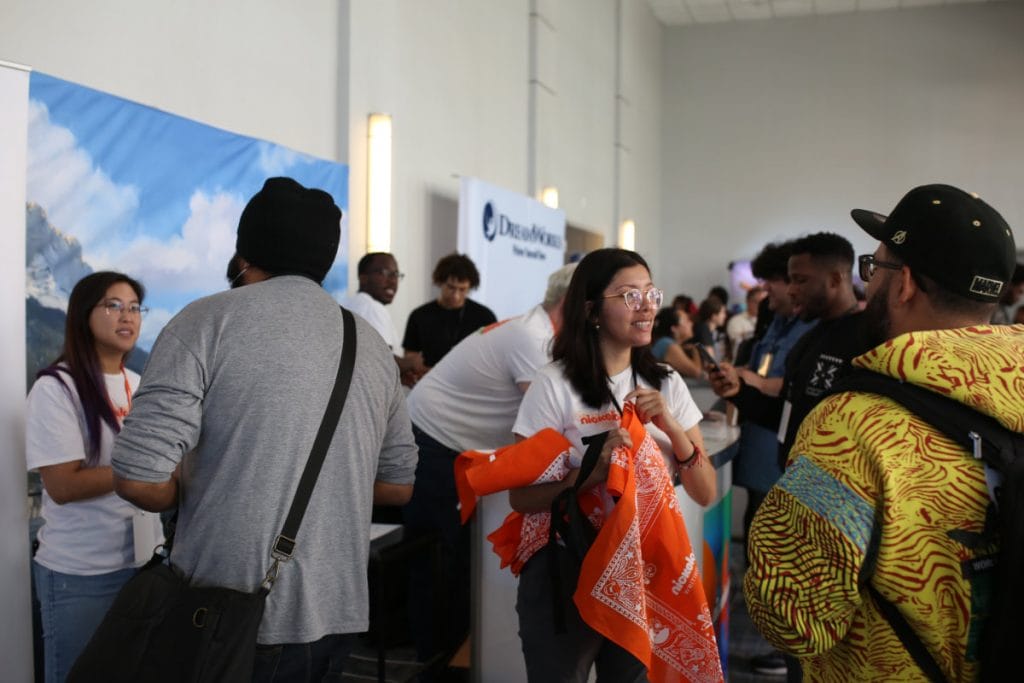
This year’s conference will be the fourth AfroAnimation Summit. How has the summit evolved over the years, particularly as the world has transitioned back out of lockdown?
Keith: I pulled together a team [in 2021] and in three months we pulled off our first AfroAnimation conference. And not only was I focusing the model on who we wanted – obviously we wanted Black and multicultural, diverse, BIPOC creators – but I also wanted to make it international. Because the disconnect that I was hearing from the continents stayed with me.
We acted as this bridge to connect creators with creators in the Black space, but also studios with creators and creators with studios. We pulled off this amazing online conference with 1,700 creators from North America, Africa, the Caribbean, and Western Europe.
It was really phenomenal, because there was this exchange of information that this audience was hungry to hear. One thing that I have pleasantly come to find out about the animation community is that they’re very passionate. It’s not a hard sell when you can say, “Hey, we’re pulling the tribe together.”
In 2022, we decided to do it again – still the pandemic, so online. We made it for free. And we doubled down on our marketing. In 2021 women represented 31% of attendees. So I said, “Let’s create things that focus on women creatives, and spend in our marketing and do our organic targeting to reach more women.”
By the end of the conference in 2022, 49% [of attendees] were women. So we’re really happy that we made a commitment to reach out more to women, and we’re happy to see a really great balance between men and women at our conferences.
In 2022 we jumped from 1,700 attendees to 4,900. We built this community of almost 5,000 creators.
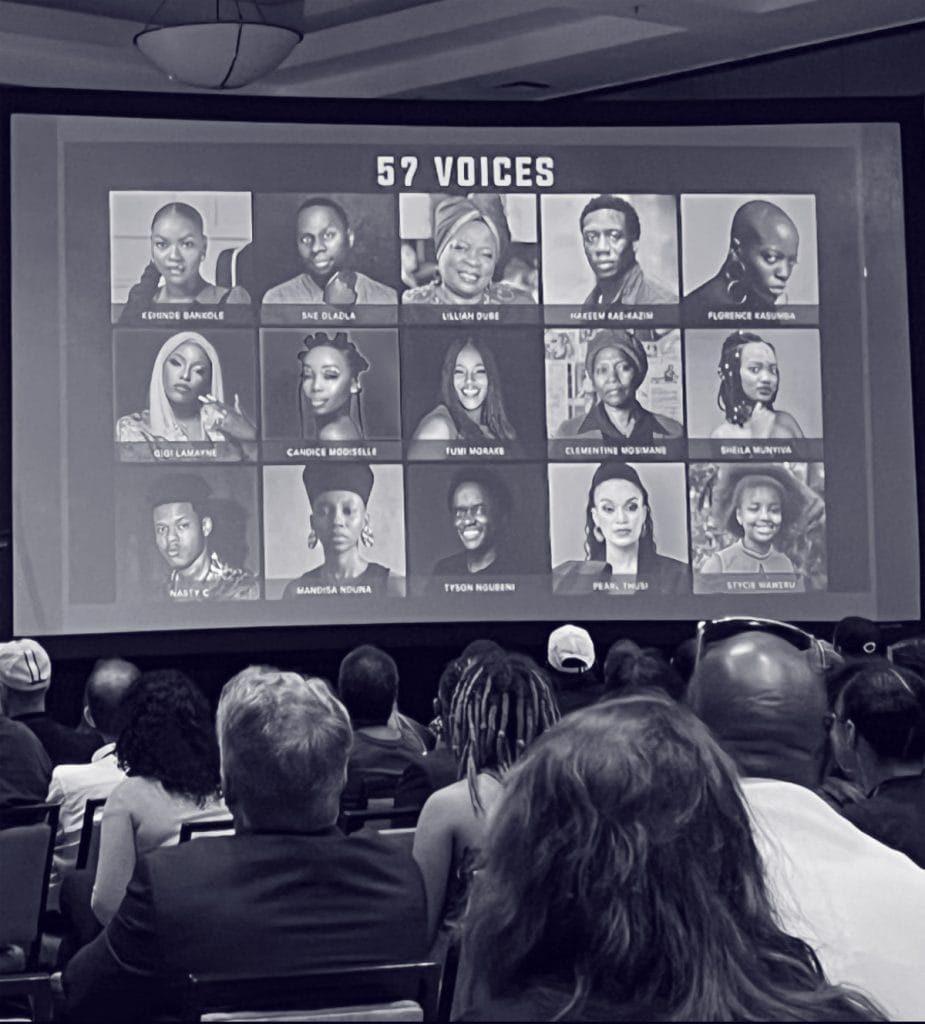
You mentioned BIPOC animators earlier. Is the AfroAnimation Summit open to POC artists who don’t identify as Black?
Keith: Yes. It’s called ‘AfroAnimation,’ but I’m really about multiculturalism. I come from a multicultural family. I wanted any artists – particularly Black artists – to be connected to any demographic that’s underrepresented. We intentionally focus our marketing to reach those demographics.
I’m happy to say that, even though the majority of our audience is Black, we have a really good, mixed makeup of diversity of other ethnicities that attend.
That’s awesome! You were just talking about the evolution of the conference. How did last year’s conference go?
Keith: Post-2022, coming out of the pandemic, it just seemed to make sense to, if we’re going to scale it, go to an in-person conference. Actually, it was a hybrid. We didn’t want to lose our international audience we have built the first two years. But my forecast was 500 [in-person] attendees for 2023, and we blew past that number with 800.
The great thing is, we got to add interesting things like the expo hall. The expo hall was phenomenal. If you are an up-and-coming young creator, freelancing, or you have your portfolio, having a professional from a studio actually review it and give you feedback is rare. But we had twelve different booths, different studios. And, for free, you could have your portfolio or CV reviewed for feedback. You could go around to Sony, or Marvel, or DreamWorks or Netflix.
We added all these extra things and now we’re coming back for 2024. We understand that there’s a lot of disruption that’s happening in the media space. There are hiring freezes, there are layoffs, people are nervous and unsure. So we’re going to our partners and saying, “Who’s actually going to be interviewing this year? Who’s actually going to be hiring?”
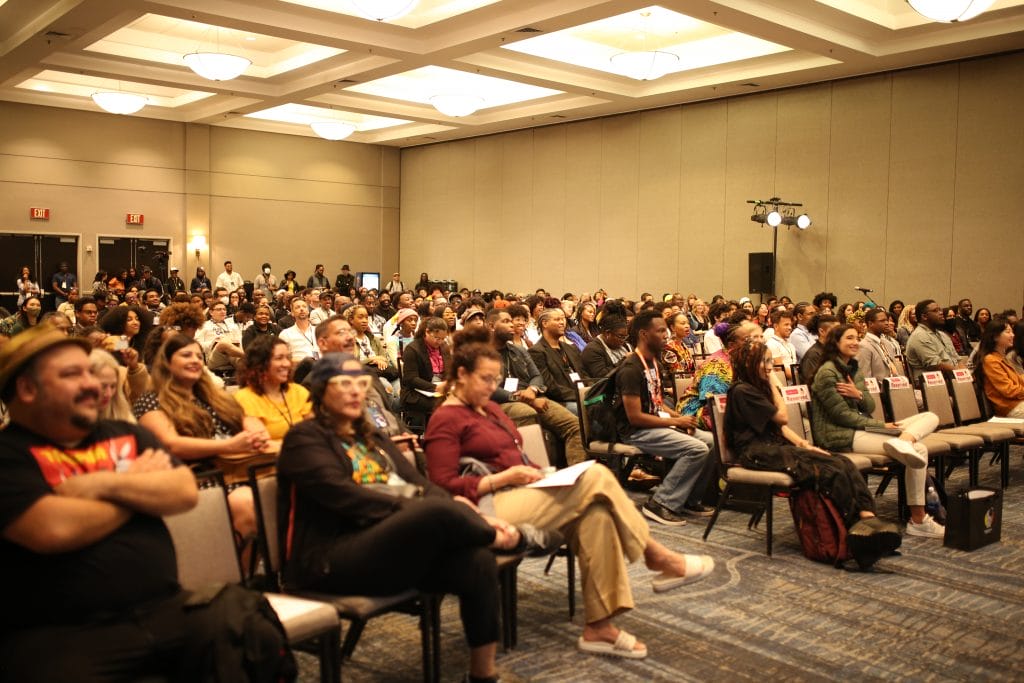
AfroAnimation is adding an awards ceremony to the conference. What can you tell me about that?
Keith: We’re also having an awards dinner. [The categories are] best-in-class feature film, shorts, and series that meet very specific requirements. Is there a black or mixed race character as a lead or prominent role? Is the cast black or multiracial? And is the theme of your IP ethnic in nature?
Any one of those qualifiers gets your IP potentially nominated into a category where we’ll come together at not necessarily a black tie event, but something close to it, to amplify this content that represents that category.
And you become aware of an IP just because there’s this special recognition of this category, pushing the conversation about inclusion and representation to the forefront.
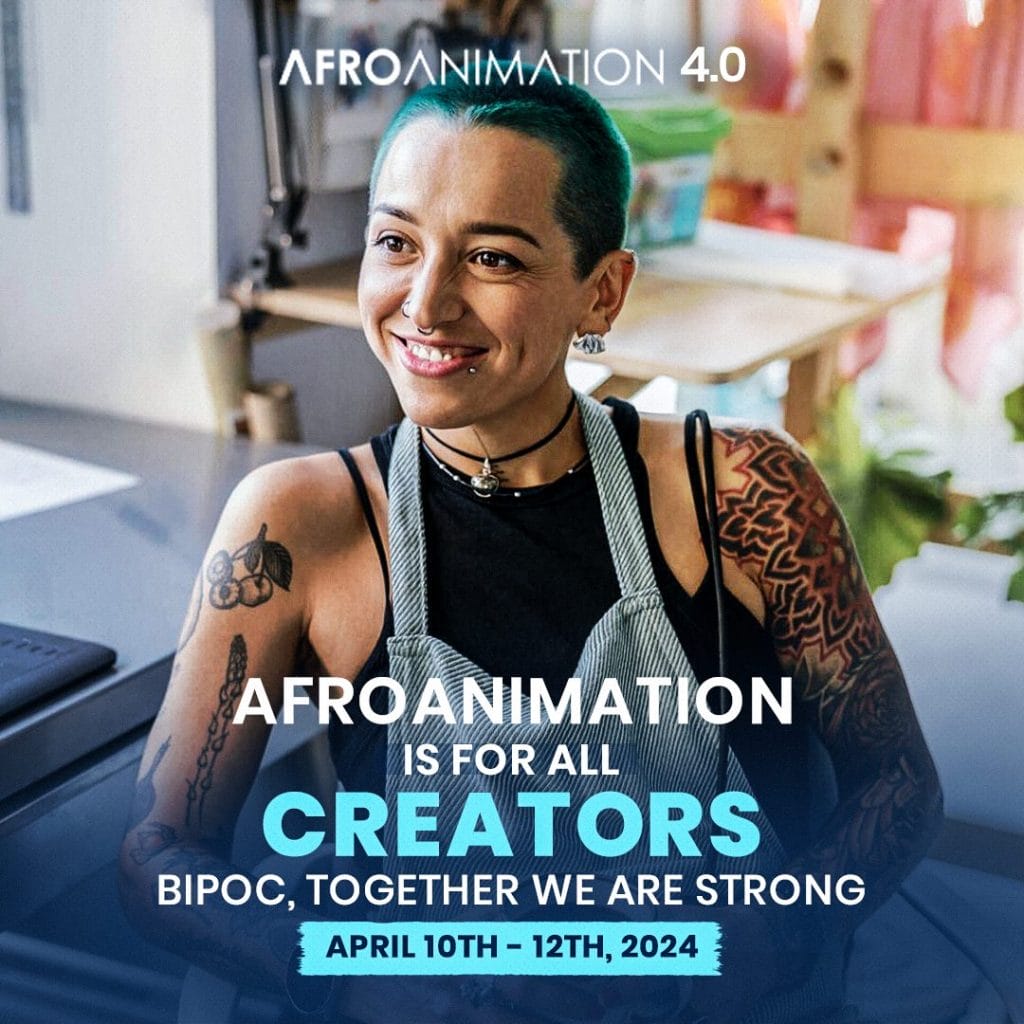
I imagine that there will be a lot of interest this year in job opportunities in particular. Have you and your team found potential employers that attendees might want to know about?
Keith: There are some big studios who have talked about the potential of doing interviews. But there are also companies that are telling us that, this year, they are going to be hiring. One told us that they’re hiring 250 people this year alone based on the projects that are in their pipeline.
So we’re doing things within the programming to put a special highlight on the fact that there will be jobs available and we’re doing one-on-one, in-person job interviews. Some companies are doing portfolio reviews. We’re curating a list of internships, apprenticeships, and mentorships that are available not just in the animation space, but also in adjacent careers.
So, it could be a studio that has a consumer products division. You’re not necessarily specifically working in animation, but they hire illustrators. They hire freelancers. They hire graphic designers.
- The AfroAnimation summit takes place from April 10 to 12. Interested in learning more about this year’s conference in-person or online? Visit the AfroAnimation Summit website.
- More information on the FRWD Awards is available here. AfroAnimation is also hosting the AAS Live Illustration Competition.


